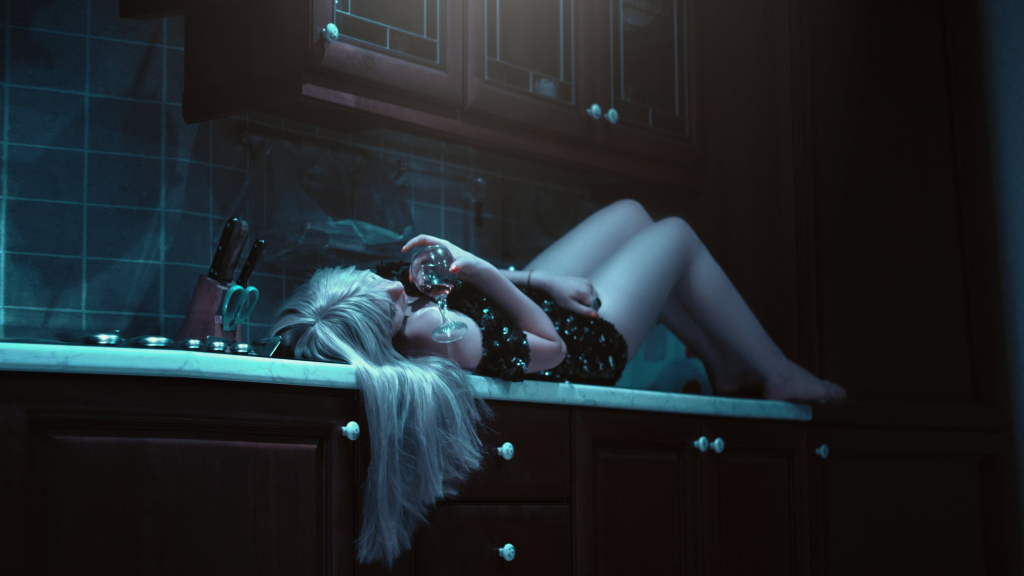Drinking is a typical, widely accepted part of our social lives. Chances are in this week alone you’ll have attended an event or an activity where drinking was a prevalent part of the festivities. Drinking has become such a social norm that it seems odd if someone chooses to decline an invitation to a happy hour or noticeably abstains from having a drink at a gathering. The acceptance of alcohol and the uncomfortableness around those who choose to abstain makes it difficult to have an honest conversation about your positive or negative feelings about it.
If you’re questioning your relationship with alcohol and wondering if perhaps you’re using it in a disordered way, read these 8 warning signs that will help you assess your dependency-or lack of-with alcohol.
You Tend To Drink More Than You Wanted Or Planned To

Do you find yourself making unkept promises to yourself when it comes to drinking? Do you say that you’re only going to have one or two drinks and then find yourself losing count of how many you’ve had? Are you spending more money than you intend to or drinking throughout the week when you said you were only going to drink on weekends with friends? If you’re making an effort to set goals and moderate your drinking, but you can’t seem to stick to it, this points to an unhealthy relationship with alcohol. On the other hand, if you are able to cut back on drinking, Ruby Warrington, the author of Sober Curious says, “Commit to focusing on all the positive things you experience as a result of not drinking during this period. This will begin to rewire the subconscious neural pathways that lead to you drinking habitually — even when your conscious mind is telling you it’s time to quit.“
If you’ve quit drinking for a bit and you’ve noticed tremors, anxiety, hallucinations or irritability, you may be experiencing signs of alcohol withdrawal. If you’re having these symptoms, your body may have developed a high tolerance and dependency on alcohol.
Drinking Takes Precedence Over Responsibilities

Skipping appointments, blowing off work and neglecting relationships and commitments in order to drink is a major sign that you have a toxic relationship with alcohol. Addiction specialist and counselor, Frank Say says if “the use of alcohol becomes increasingly important in regards to other responsibilities in life, such as family, work, friends, etc”, you’re giving too much priority to drinking.
You Use Alcohol To Avoid Complex Feelings

Using alcohol to avoid anger, sadness or stress is a strong sign that your relationship with the substance is far from healthy. If you’re relying on alcohol to avoid or numb complicated feelings or situations, this is also a sign that this is your preferred coping mechanism – which is dangerous. It’s never acceptable to depend on a drink to help you face -or avoid- the issues in your life.
It’s Hard For You To Have Fun, Date Or Socialize Without A Drink

Alcohol is such a widespread and accepted social norm that it’s hard to get away from it when you’re in social situations. It’s become normal to hear a friend recommend having a drink to relax or lower your inhibitions when you’re at a get together or on a date. However, if you’re at a party or on a date without a drink, does it make you feel anxious, awkward or uncomfortable? There’s nothing wrong with enjoying a drink when you’re socializing, but if you can’t enjoy yourself without a drink, this points to a bigger a problem.
The necessity of relying on alcohol during sex is also an issue. It’s not uncommon for people to need alcohol in order to enjoy sex, or use alcohol as a means to help them lower their inhibitions before they have sex. Clearly this is a sign of an unhealthy relationship with alcohol- and it’s an unhealthy relationship with yourself and the person you’re having sex with.
Alcohol may also be a means of hiding your social anxiety- especially if you avoid social interactions if they don’t include alcohol. If you bring alcohol to events, require having a drink before going out among people, or if it’s difficult for you to enjoy casual events, where you should feel safe and secure, without the presence of alcohol, this signals to a deeper issue.
You’ve Developed Secretive Behavior Pertaining To Drinking

Whether you’re sneaking off during lunch for a quick midday cocktail or not drinking around your kids, this is indicative of a toxic relationship with alcohol. Say asks, “Do you justify your drinking by claiming to be a social drinker? Conversely, do you often drink alone?” Say cautions that this may be a way of deceiving yourself that you’re in control when the reality is that there’s a problem.
You Get Anxious Around Alcohol

Individuals who choose to abstain from drinking due to heightened anxiety and negative feelings surrounding alcohol, may have an unhealthy relationship with drinking as well. If the idea of being at a gathering or an event where alcohol is present makes you uneasy, anxious, and uncomfortable, you may want to look into the reason why. If you’ve had a destructive or traumatic relationship with alcohol in the past, you may feel disgusted, bothered, or fearful of being around alcoholic beverages – especially if alcohol triggers bad memories.
You’ve Experienced Troubling Consequences Due To Your Drinking

Have you experienced serious consequences as a result of your drinking? If so, it’s time to come to terms with the role alcohol plays in your life. Serious consequences can range from risky behavior, aggressive behavior, blacking out, or carelessly spending a lot of money when you didn’t intend to.
The People In Your Life Are Concerned About Your Drinking

It’s common for individuals to be high functioning when they’re abusing alcohol, creating little to no obvious rifts (or so they think) in their personal relationships. However, if there are many people that you’re close to who are mentioning that they’re concerned about your drinking, you may want to listen. Counselor and addiction specialist, Erin Parisi says that clients often tell her, “My loved one asked me to cut back and I wouldn’t or couldn’t,” or “All my friends also drink.”
If you’re getting into fights with loved ones, or your closest family and friends mention that you’re personality changes when you drink, it’s time to take that into consideration. If the people who love you are worried about your alcohol intake it’s worth examining.
Things Are Getting Worse

Alcoholism and addiction is a progressive disease. Parisi explains, “Generally speaking people have a tough time identifying their own problematic behaviors, mostly because of the way it’s a slow progression over time for most people.” She continues “When someone creeps from three nights a week of having a glass of wine after work to four or five, to a bottle of wine on a weekend night, to a bottle of wine per night,” she says, “there isn’t necessarily an alarm bell that goes off, but the beginnings of a problem are already there.”
If you or a loved one is struggling, it’s important to look into getting support from your doctor, a support group, and your friends and family. Let the people in your life know that you’re seeking help and make a plan to stick to being sober for a while. During this time, seek ways to become less dependent on alcohol and explore your options regarding treatment.

